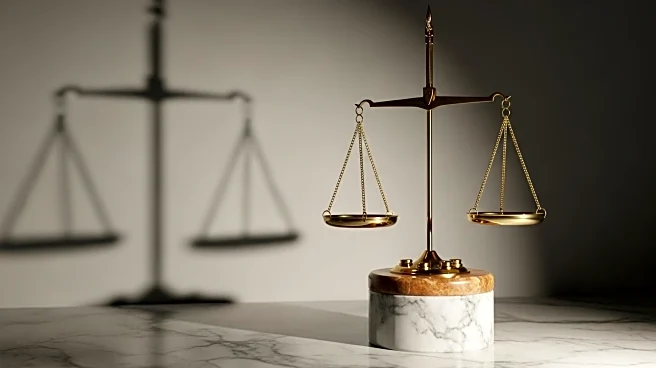What's Happening?
The Supreme Court's shadow docket, traditionally a less prominent aspect of its work, has become a focal point for significant judicial decisions. This docket allows the Court to issue rulings without full briefing or oral arguments, often leading to decisions that can alter legal precedents. Recently, the Court's conservative majority has utilized the shadow docket to expedite decisions that favor the administration, bypassing traditional judicial processes. Critics argue that this approach undermines the Court's legitimacy and the rule of law, as it allows for decisions that may not align with established precedents. Justice Kagan has criticized this practice, emphasizing that emergency dockets should not be used to circumvent existing legal standards.
Why It's Important?
The increased reliance on the shadow docket by the Supreme Court has significant implications for the U.S. legal system. It raises concerns about transparency and accountability, as decisions made through this process lack the thorough examination typical of regular cases. This approach can lead to rapid changes in legal precedents, affecting various aspects of public policy and governance. The use of the shadow docket to favor certain political outcomes may erode public trust in the judiciary, as it appears to prioritize expediency over legal integrity. Stakeholders, including legal experts and civil rights advocates, worry that this trend could lead to a more politicized judiciary, undermining the separation of powers and the checks and balances essential to democratic governance.
What's Next?
The Supreme Court's continued use of the shadow docket is likely to face increased scrutiny from legal scholars, policymakers, and the public. As the Court prepares to address significant cases, including those related to agency independence and social policy, the shadow docket's role in shaping these decisions will be closely monitored. Potential reforms to limit the use of the shadow docket or increase transparency in its proceedings may be considered to restore confidence in the judicial process. The outcome of upcoming cases could further define the scope and impact of the shadow docket, influencing how future administrations and courts approach urgent legal matters.








